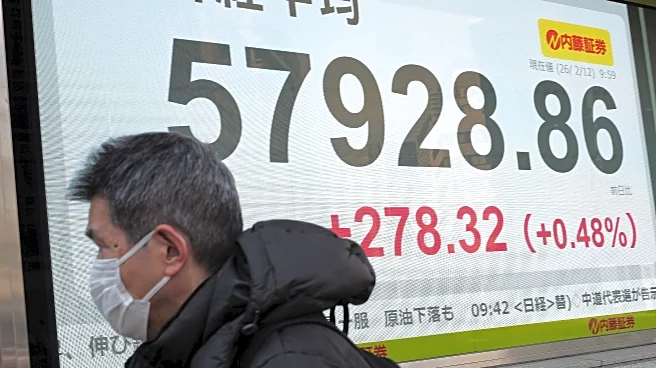What's Happening?
Researchers at the University of Pennsylvania have developed an AI system capable of analyzing facial features to predict personality traits, which could influence job interview outcomes. The AI was trained using photos of nearly 96,000 MBA graduates,
and its predictions were often accurate when compared to real-life career trajectories. While the technology is intended to assist human decision-making, it raises significant legal and privacy concerns. The AI's ability to detect subtle facial cues that hint at personality traits could lead to its use in screening job candidates, potentially impacting hiring practices.
Why It's Important?
The introduction of AI in job interview processes could revolutionize hiring practices by providing insights into candidates' personalities. However, this technology also poses ethical challenges, as it may lead to discrimination based on appearance. The potential for AI to influence hiring decisions underscores the need for careful consideration of privacy and legal implications. Employers must balance the benefits of AI-driven insights with the risk of infringing on candidates' rights and privacy.
What's Next?
As AI technology continues to advance, companies may explore its use in recruitment processes to enhance decision-making. However, the adoption of such tools will require robust ethical guidelines and legal frameworks to prevent misuse and protect candidates' rights. Stakeholders, including policymakers and industry leaders, must collaborate to establish standards that ensure fair and transparent use of AI in hiring.
Beyond the Headlines
The use of AI in job interviews highlights broader societal concerns about privacy and the potential for technology to perpetuate biases. As AI systems become more sophisticated, there is a growing need for ethical oversight to ensure that technology serves as a tool for empowerment rather than discrimination. The development of AI-driven hiring tools must prioritize transparency and accountability to maintain public trust.


















